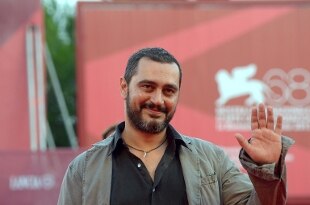- Not only Scorsese: at the Rome Film Festival Bill Murray and John Travolta. Monda: watch out for Waves
- Rome Festival, the double soul of cinema. From Scorsese to John Travolta and many directors
Share
October 07, 2019 A project born ten years, conceived as the core of a film script, which later became a novel and finally turned into a film. "Il ladro di giorni" by Guido Lombardi, writer, screenwriter and director, will be in the official selection of the Rome Film Festival and features Riccardo Scamarcio and the very young Augusto Zazzaro, produced by Indigo film, Bronx film and Rai Cinema.It is, above all, a crossover story signed by Lombardi, his first non-four-handed novel (after "Non mi hai mai", written with Gaetano Di Vaio, and "Teste matte", with Salvatore Striano), published by Feltrinelli and in bookstores since last April. The subject in 2007 had won the Solinas Prize and is now a feature film scheduled at the Capitoline Festival. "It was Nicola Giuliano who pushed me to expand the thirty pages that I had read around in the hope of making a film of it," says Lombardi, 44, who has already brought the "Take five" competition to Rome in 2013.
"With Marco Gianfreda and Luca De Benedittis the operation of rewriting the subject in film became a sort of vase communicating with the one of the novel - it reveals - and the script developed in parallel with that of the book. an 11-year-old boy was the meeting point, the unaltered element of the initial project remained ". The book - as well as the film - tells of a journey along Italy of a few days that manages to recover a relationship between father and son interrupted by the imprisonment of man, by the death of the woman who married him and raised his son, and since the adoption of these by maternal uncles.
The world of the child's rules (school, homework, travel, eating at the table, etc.) stops and confronts the 'anarchist' one of the man, an orphan, who has become a robber, tied to organized crime, so as not to betray her who spent a long time in prison. A contrast for which Lombardi also chooses the dialect register, which in the first part of the book breaks into only a distant memory of the child of a visit to the 'old' mother, the boss, when the father is taken by the police, and that then he returns to the dialogues of the second part, when his father arrives in Puglia with the child to carry out a mysterious mission. "I used the dialect especially when the father tells his son about the bivouac in the woods - the writer and director underlines - and then in the dialogues between him and his accomplices Vito and Totò. A particularity that I kept in the film. The dialect is like a symbol of a return to the origins, for Salvo the language that he listened to as a child. "
And in the book as well as in the film, there is the anxiety of the little Salvo "of wanting to please his father, of being loved, which also leads him to accept, despite the rigid education of his uncles, the illegalities committed by his father, who at he will also see it as non-punishable actions: a confrontation between totally opposed worlds and models that will make him grow ". The figure of the book, in the descriptions and dialogues, precisely through the choice of telling what happens as an 11-year-old would tell it, is slight, so as not to make even the presence on the background of organized crime dark. There is no 'Gomorrah', therefore, not even when the 'Old' is at the center of the plot. "I wanted to escape the kind of images and the attempt is also in the film - Lombardi says - also because the setting of the subject is in the 80s, and those were other mafias, even more bloody and fearsome. But also for this I chose the setting of rural Puglia ". And, he adds, "there is almost a nostalgic tone of an ancient age, even if in the film I try to be more 'modern'".
"Il ladro di giorni" is Lombardi's third fiction feature, after "Là-bas - Criminal Education", awarded as Best First Film at the Venice Film Festival in 2011 and "Take five" (2013). Three years ago he signed "Nina and Yoyo", in "Come to live in Naples", an episodic film directed with Francesco Prisco and Edoardo De Angelis.

